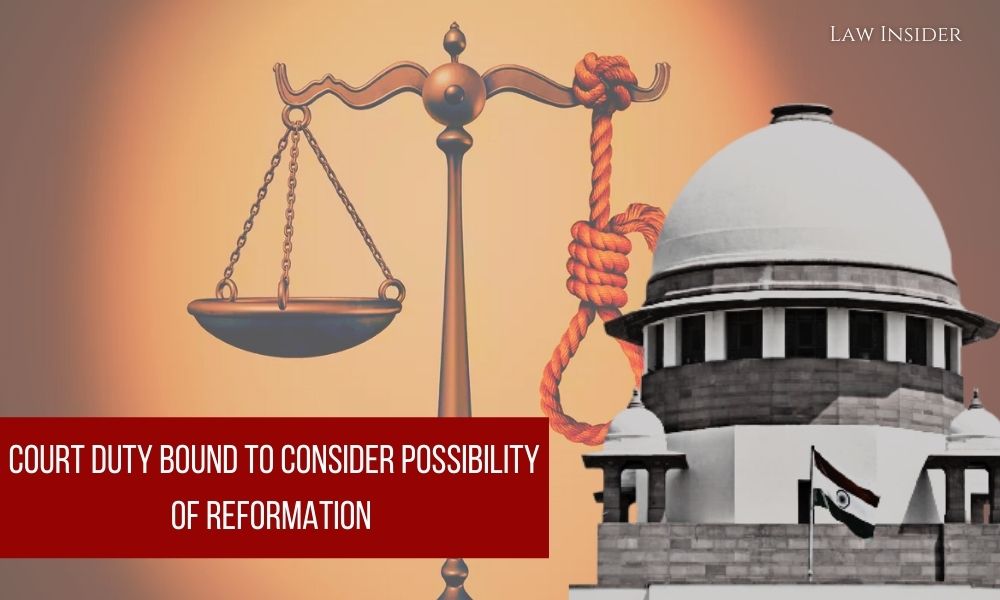Anushka Sharma –
Published On: November 27, 2021 at 13:00 IST
On Friday, the Supreme Court granted review Petitions submitted by two Death-row inmates seeking to have their Death sentences commuted to life Imprisonment for a period of 30 years.
Even if the Accused remains silent, a Bench of Justices L Nageswara Rao, BR Gavai, and BV Nagarathna underlined in the order that the Court is required to collect all relevant evidence regarding the prospect of the Convicts’ reformation before imposing the harshest punishment of Death sentence.
Furthermore, the State is required to obtain evidence demonstrating that the Accused has no chance of reformation or rehabilitation.
In this case, the Bench emphasised that the Death penalty was imposed without regard for the inmates’ ability to be reformed.
The Court was considering the appeals of Mofil and Mobarak Khan, who were condemned to Death in 2007 for the Murder of eight people. The Jharkhand High Court maintained the Death penalty.
The Supreme Court upheld the Death Penalty in 2014, dismissing their Appeals. The Courts noted that the eight people were cruelly murdered in a pre-planned way, including innocent children and a physically disabled person, and concluded that the case fell into the ‘Rarest-of-rare’ category, deserving of capital sentence.
Despite the fact that Senior Advocate CU Singh, arguing on behalf of the Petitioners, claimed that the sentence was insufficient to condemn them in the first place, the Court stated that it cannot re-appreciate evidence under a review Jurisdiction.
However, the Court noted that the aspect regarding possibility of reformation was ignored while awarding Death sentence.
“One of the mitigating circumstances is the probability of the Accused being reformed and rehabilitated. The State is under a duty to procure evidence to establish that there is no possibility of reformation and rehabilitation of the Accused”, the judgment authored by Justice Nageswara Rao stated, after referring to precedents.
“It is well-settled Law that the possibility of reformation and rehabilitation of the convict is an important factor which has to be taken into account as a mitigating circumstance before sentencing him to Death. There is a bounden duty cast on the Courts to elicit information of all the relevant factors and consider those regarding the possibility of reformation, even if the accused remains silent”, the judgment added.

